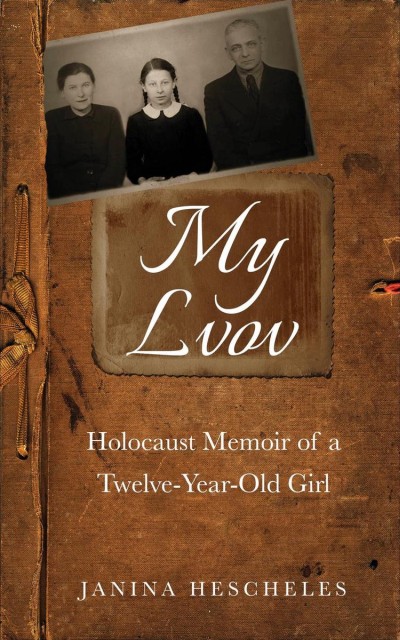| Title: | My Lvov - Holocaust Memoir of a Twelve-Year-Old Girl |
| Writer: | Hescheles, J. |
| Published: | Amsterdam Publishers |
| Published in: | 2020 |
| Pages: | 148 |
| Language: | English |
| ISBN: | 9789493056367 |
| Description: | My Lvov is a memoir of the Jewish Janina Hescheles. In this memoir she tells about the German occupation of the Polish (now Ukrainian) city Lviv that started on 30 June 1941, about life in the Jewish ghetto, about the Jüdische Arbeitslager (short: Julag), and about the concentration camp and extermination camp Janovska. The book ends in 1943, shortly after Janina’s liberation. Despite death and destruction, the story reveals the hope, courage and decisiveness of the Jewish victims. My Lvov gives a valuable psychological dimension to our historic knowledge of the Holocaust. On 22 June 1941 the Soviets, who occupied the city in September 1939, started to retreat. Just 8 days later, the Germans took over. The situation changed drastically, and Jews were no longer welcome. For Janina’s father, the seriousness of the situation became clear very quickly. "It’s up to you to be independent. Don’t mind others. It’s up to you to be brave. Go." These were his words to his only, beloved daughter. Would Janina see her father again? Right after saying goodbye to her father, she became witness to the first pogrom aimed at the Jews. Janina describes the changes in Lviv and the building of the Julag. She describes in detail the big Aktion of August 1942. Both Janina and her mother were taken prisoner. Despite the words of her father she had to cry. Her mother tried to comfort her: "If they shoot us, I will cover your eyes." These words were not very comforting to Janina. Her biggest fear was to be buried alive. Detailed is Janina’s description of her experience at the Deutsche Ausrüstungswerke (DAW, German Equipment Works) and of her transfer to the Frauenlager (Women’s camp). She witnessed the stack of dead bodies grow day by day, stunned by the smell of bodies being burned on the beach of Piaski -- the beach where she had beautiful memories. She could smell death, but she was no longer afraid. Did this mean that she would simply accept her fate? Absolutely not. Yet, she doubted God. During Yom Kippur, she decided to eat despite the period of fasting. But it wasn’t just the food that kept her alive. It was the poems of two fellow prisoners, who undoubtedly reminded her of the poems she herself recited every now and then. Janina’s poems were heard by fellow prisoners who had contacts in the resistance. Because of them, she managed to get in touch with people who wanted to help her escape. The fact that she had help during her escape was therefore no coincidence. At a young age - she was only 10 years old - Janina was forced to choose between life and death. Two years later, in 1943, right after she escaped from camp Janovska with the help of the underground resistance, she wrote down her early life experiences in a personal yet orderly manner. The events that took place in the ghetto and in the camp were still fresh in her mind. Starting a year and a half later, from October 1943 until the day of the liberation, Janina’s writings were collected and hidden in a location away from the author by members of the underground resistance. Multiple lives were put on the line because of this, and Janina knew that she was in a dangerous situation herself. Still, she was more than willing to take that risk. She had been a witness not only to the cruelty of the occupier but also to the victims who fought until their final hour. According to Janina, this mindset had nothing to do with heroism, but had everything to do with the mere will to survive. From Janina’s memoirs it appears that her upbringing undoubtedly played a role in this. Janina’s poems are an indispensable part of this memoir and are added at the end of the book. They are impressive yet they seldom rhyme. Of course, Janina wasn’t the only child victim that wrote about the atrocities of the Holocaust. Still, there is a significant difference between her story and those of many other children. Most were written down after the war, while Janina wrote down her memories and poems when danger had not yet passed. The book breathes this atmosphere. Janina’s description of personal experiences shows extraordinary maturity. From the first pages it appears that she understood more of the situation than one would expect from a twelve-year-old. The book is informative and compelling at the same time. It may be small in size, but it is large in its genre. I recommend My Lvov to anyone who has a general interest in the Holocaust. |
| Rating: |    Good Good |
Information
- Translated by:
- Barbara Keus
- Article by:
- Claire van Proemeren
- Published on:
- 29-08-2020
- Feedback?
- Send it!



